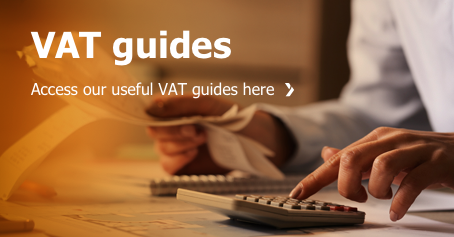Costa Rica VAT Guide

Carlos Maffioli Barrantes
Costa Rica VAT specialist
cmaffioli@krestoncostarica.com
This guide is an overview of the Costa Rica Value Added Tax (“VAT”), focusing on how it affects foreign companies doing business with/in Costa Rica.
It is general in nature and is unlikely to cover the details of your scenario. It should be read as such and not construed as advice. For advice on how your business is affected by Costa Rica VAT contact a Kreston Costa Rica VAT specialist.
- What is the tax called?
- What is the tax authority?
- What type of tax is it?
- When is it generated?
- What are the VAT rates?
- What does a VAT number look like?
- Is there a registration limit?
- When does a non-established entity need to register?
- When is the place of supply in the Costa Rica?
- Any special rules?
- Does a non-established entity need a fiscal representative?
- How often do VAT returns need to be submitted?
- Are there penalties for late registration?
- Are penalties imposed in other circumstances?
- Can VAT incurred by overseas businesses be recovered?
- Can VAT be deducted?
- Do I need to issue an invoice?
- Other
What is the tax called?
VAT – Value Added Tax
What is the tax authority?
General Directorate of Taxation
What type of tax is it?
It is an indirect tax on consumption, meaning that when a person makes a purchase of a good or service and the place of delivery is Costa Rica, they pay this tax.
When is it generated?
The value-added tax is levied on the sale of goods, on the provision of services and on the consumption in national territory of digital services or intangible goods from abroad, regardless of the means by which they are provided, carried out in Costa Rica.
What are the VAT rates?
General rate
13% on all operations (sale of goods and provision of services), subject and not exempt.
Reduced Rate 4%
- Private health services
- Air tickets (in the case of international flights, the tax is calculated on 10% of the value of the air ticket)
Reduced Rate 2%
- Medications
- Raw materials, inputs, machinery, equipment and reagents necessary for the production of medicines for human consumption.
- Personal Insurance Premiums
- Private education insurance
- Purchase and sale of goods and services carried out by state higher education institutions, their foundations, the National Council of Rectors (CONARE), the National Higher Education Accreditation System (SINAES) and state para-university institutions.
Reduced Rate 1%
- Basic Tax Basket (CBT, Spanish initials)
- Machinery, equipment, services and inputs for the production of CBT.
- Agricultural, veterinary and non-sport fishing inputs.
Special Rate for Engineering, Architecture, Topography and Civil Works Construction Services
8% from September 1st, 2022 to August 31st, 2023.
13% from September 1st, 2023 onwards
Special Rate for Tourist Services
8% from July 1st, 2022 to June 30th, 2023.
13% from July 1st, 2023, onwards.
Special Rate for Collection, Classification and Storage Services for Recyclable and Reusable Goods
8% from July 1st, 2021 to June 30th, 2022.
13% from July 1st, 2022, onwards.
What does a VAT number look like?
The VAT number corresponds to the legal or physical identification number of the taxpayer and is displayed like this, respectively 3-1NN-NNNNNN, N-NNNN-NNNN
In the case of a person not domiciled in Costa Rica, it corresponds to a tax identification number (NITE, Spanish initials) assigned by the tax administration at the time of registration and is displayed like this 3-120-NNNNNN.
Is there a registration limit?
There is no limit, it applies to all sales of goods and provision of services, carried out regularly by taxpayers (article 4 of the law).
When does a non-established entity need to register?
Every person responsible for VAT must register within 10 business days from the start date of operations, or the importation or sale of goods or the provision of services, in the country.
In the case of the sale of services or intangible goods, whose provider is not domiciled in Costa Rica, the taxpayer will be the recipient of the service or intangible good (investment of the taxpayer). The non-resident entity has the possibility to register in Costa Rica.
When is the place of supply in the Costa Rica?
The sale of goods and the provision of services carried out on a regular basis in the Costa Rican territory.
Any special rules?
- Value Added Tax (VAT) in casinos and game rooms.
- Leasing of movable and immovable property.
- Special Agricultural Regime
- Special Regime for Used Goods
- Simplified Tax Regime
Does a non-established entity need a fiscal representative?
Yes, non-domiciled entities must assign a legal representative who is responsible for tax obligations who will have criminal liability in cases of non-compliance.
How often do VAT returns need to be submitted?
The tax period is monthly.
In the case of the Special Agricultural Regime and the Simplified Taxation Regime, returns are filed on a quarterly basis.
Are there penalties for late registration?
Yes, the fine of half a base salary per month or fraction of a month, without exceeding the amount of three (3) base salaries. There are discounts if it is corrected voluntarily.
Are penalties imposed in other circumstances?
- Due to the omission of filing self-assessment returns (monthly). Half salary.
- Delinquency in the payment of the tax. 1% fine for each month or fraction of a month, for the period elapsed from the moment when the payment of the tax should have been made until the date of effective payment. This sanction has no reduction; it is calculated on the amount of the tax not paid on time and cannot exceed 20% of that amount.
Can VAT incurred by overseas businesses be recovered?
No.
Can VAT be deducted?
Before paying the VAT collected during the month, the taxpayer has the option of deducting or discounting the VAT paid (tax credit) for the goods or services that they have acquired to carry out their economic activity.
We have that:
Tax debit – Tax credit = Tax payable
(VAT charged) (VAT paid)
The tax credit has proportionality rules that must be followed when there are operations other than the general rate.
The difference resulting from deducting the tax credit from the tax debit will be the amount that must be paid to the treasury.
If you have paid more than what has been collected, you can choose between applying the compensation or requesting the return of balances in favor.
Do I need to issue an invoice?
There is a duty to issue electronic receipts authorized by the Tax Administration.

